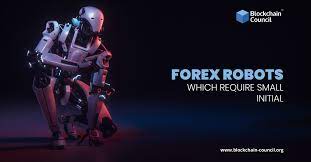In the world of forex trading, where the markets operate 24/7 across the globe, efficiency and precision are paramount. With the advent of technology, traders are increasingly turning to automated solutions to execute their strategies with speed and accuracy. One of the most significant innovations in this realm is the forex robot, a piece of forex robot designed to analyze market data and execute trades on behalf of the trader. In this article, we delve into the world of forex robots, exploring their benefits, functionalities, and the impact they have on currency trading.
What is a Forex Robot?
A forex robot, also known as an expert advisor (EA), is an automated trading system that operates within the MetaTrader platform. These robots are programmed to identify trading opportunities by analyzing market data, such as price movements, volume, and technical indicators. Once a favorable trade setup is identified, the robot can execute buy or sell orders automatically, without the need for human intervention.
How Do Forex Robots Work?
Forex robots operate based on predefined algorithms and trading strategies. These strategies can range from simple moving average crossovers to complex mathematical models based on machine learning algorithms. Traders can either develop their own custom robots or choose from a wide range of commercially available ones.
The core components of a forex robot include:
- Market Analysis: Forex robots continuously monitor market conditions, analyzing price movements and technical indicators to identify potential trading opportunities.
- Trade Execution: Once a trading signal is generated based on the predefined criteria, the robot executes trades automatically according to the parameters set by the trader.
- Risk Management: Effective risk management is essential in forex trading. Forex robots often include built-in risk management features such as stop-loss and take-profit orders to limit potential losses and maximize profits.
- Backtesting and Optimization: Before deploying a forex robot in live trading, traders typically conduct extensive backtesting to evaluate its performance under historical market conditions. Optimization techniques may also be employed to fine-tune the parameters of the robot for better results.
Benefits of Using Forex Robots
The use of forex robots offers several advantages to traders:
- 24/7 Trading: Unlike human traders, forex robots can operate round the clock, taking advantage of trading opportunities in different time zones.
- Emotion-Free Trading: Emotions such as fear and greed can often cloud judgment and lead to irrational trading decisions. Forex robots eliminate emotional bias, ensuring disciplined and consistent trading execution.
- Speed and Efficiency: Forex robots can execute trades with lightning-fast speed, reacting to market changes in real-time and capitalizing on fleeting opportunities.
- Backtesting and Optimization: Forex robots allow traders to backtest their strategies on historical data, enabling them to assess performance and optimize parameters before risking real capital.
- Diversification: With the ability to run multiple forex robots simultaneously, traders can diversify their trading strategies across different currency pairs and timeframes, reducing overall risk exposure.
Challenges and Considerations
While forex robots offer numerous benefits, there are also challenges and considerations to keep in mind:
- Over-Optimization: It’s crucial to avoid over-optimizing forex robots based on historical data, as this can lead to poor performance in live trading conditions.
- Market Volatility: Extreme market conditions, such as high volatility or sudden news events, can pose challenges for forex robots, potentially leading to unexpected losses.
- Monitoring and Maintenance: Despite their automated nature, forex robots require regular monitoring to ensure they are performing as expected. Technical issues or changing market conditions may necessitate adjustments to the robot’s parameters.
- Risk of System Failure: Reliance on automated trading systems carries the risk of technical failures or connectivity issues, which can disrupt trading operations and result in financial losses.
The Future of Forex Trading
As technology continues to evolve, the role of forex robots in currency trading is expected to expand further. Advancements in artificial intelligence and machine learning are enabling the development of more sophisticated trading algorithms capable of adapting to dynamic market conditions.
Moreover, the rise of cloud-based trading platforms and mobile applications is making automated trading accessible to a broader range of traders, regardless of their technical expertise.
In conclusion, forex robots represent a significant advancement in the realm of currency trading, offering traders the ability to automate their strategies and capitalize on market opportunities with speed and precision. While challenges exist, the potential benefits of using forex robots are substantial, paving the way for a more efficient and disciplined approach to forex trading in the digital age.
